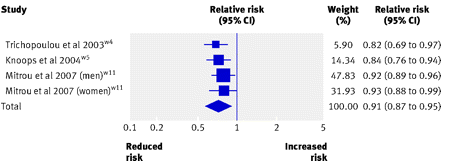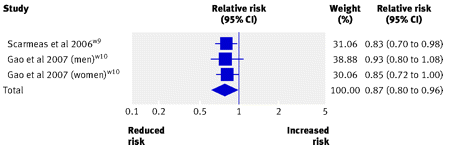I recently read the book “Outliers” by Malcolm Gladwell.
The book focuses on people whose abilities and successes are so far outside the scope of normal experience that our society tends to consider them lifeforms that are fundamentally different than the rest of us.
The central message of the book is that these people, while appearing so different from the rest of us, owe their success to a combination of talent, luck and good opportunities. Gladwell points out that our society is fixated on the concepts of personal initiative and intrinsic talent, despite the inability of these two factors to truly explain the spectacular success stories that we are surrounded by.
Talent vs Practice
When I talk about talent, I mean the differences in natural (innate) abilities among different human beings. Defined in such a manner, talent definitely exists. Human beings are different from one another in a myriad of ways. I think I speak for a lot of people when I say “Thankfully!” to this obvious fact.
Where things get a little bit hazy is when we consider to what extent talent predicts our level of success in life. On one extreme there is the argument that talent predicts all of our success in life. I am not really going to consider this argument in great depth, since it seems unable to explain either the facts of which I am aware or my personal experience. If anyone is passionate about the concept of talent/potential, I recommend the movie Gattaca.
I think most people will admit that success has something to do with both talent and practice. All other things being equal, those who work harder tend to be more successful. The main question is, to what extent does our ability or skill depend on talent, and to what extent does it depend on practice?
First of all, there are some abilities that are pretty much entirely innate, such as physical height. Assuming good nutrition, the adult height of a human being seems to be based entirely on genetic features. I would rather call this sort of quality an ‘attribute’ rather than an ‘ability’. For this analysis, I will focus more on the term ‘skill’, which I would regard as a subset of ‘ability’.
Ericsson and Charness
Gladwell cites some famous research on the subject of expert performance. K. Anders Ericsson and Neil Charness have researched this subject extensively, and their work is regarded very highly in social science circles. In fact, during my psychology degree I had to read one of their papers: Expert Performance: Its Structure and Acquisition. I thought it was an excellent read and recommend it to anyone who finds this subject interesting.
I would summarize the research in the following way: Most of the observable difference in performance (in almost any field) is a direct consequence of the practitioners spending different lengths of time engaged in deliberate practice. The more you practice, the better you tend to be. The effect of practice seems to massively overshadow the effect of talent in the subject areas that Ericsson and Charness studied.
Additionally, Ericsson and Charness found that the amount of dedicated practice necessary to achieve grandmaster level skill (equalled only by perhaps a few people in the world) is remarkably constant across all skills and cultures: 10,000 hours. This averages out to about 3 hours per day for ten years. Someone who dedicates themselves to this amount of practice will, at the end of ten years time, be among the best in the world at their chosen skill.
I would like to add a qualification to this conclusion based on my own experience and knowledge. When considering elite performance such as Olympic athletes, it seems clear to me that even slight advantages offered by genetics can be telling when two dedicated athletes go head to head. It is a well-known fact in most athletic endeavors that gains in measurable ability tend to be large for beginners, but very small for experts. A small difference in ability that is due to innate factors could be as important as months or even years of training in certain skills. When exploring the ultimate reaches of human ability, even small differences in talent can be important.
Human Intelligence
Gladwell argues that in some areas of human endeavor, we encounter what are called threshold effects. His most extensive example of this is human intelligence. It has been estimated that Albert Einstein had an IQ of around 150. There are actually a fair number of people who have been measured to have IQs higher than this value. Does this mean that they are ‘smarter’ than Einstein?
IQ does a relatively poor job of differentiating between very intelligent people. Once into the genius range above IQ 120 it is very difficult to predict test performance or academic success using the measure of IQ. Gladwell calls this a threshold effect. Once people are above IQ 120 or so they are smart enough that other factors begin to be more important if we are to try to predict their level of success. For more info on this subject, read the book! 🙂
Opportunity
Perhaps the central theme of the book is opportunity. The people who are recognized as being the most successful in our world tend to owe their success to important opportunities that they were offered during their lives. Gladwell draws on examples from a variety of industries including law, high-tech computing, and science. In every area he shows how these now-prominent people were offered important opportunities at a time in their lives when they were able to take advantage of them.
In closing, Gladwell knits together the various threads of this work into a cohesive picture of how we can try to make our society better. Primarily what he is driving for is a change in the way we perceive achievement in general. Great achievement is accomplished through a combination of practice, luck, and talent. If we as a society accept this broader view of personal accomplishment, it will be possible to improve our lives in many meaningful ways. Gladwell cites a number of specific examples, along with his supporting data.
Current academic and sport selections all too often confuse ability with maturity. Thanks to the cut off dates for each year’s class or competition, the children who are the oldest in a given year have a very notable advantage in both academics and sports. In part this is because we tend to provide more advanced schooling or training for the more advanced children in each year. This leads to a widening gap in ability that started as only a small difference in ability that was primarily based on age.
If we wish to create the environment that is most conducive for development of our children, we will try to challenge them to think for themselves, split their yearly classes and sports leagues into at least 2 or 3 sections according to age, and make a distinct effort to prepare them for the opportunities that our society will offer them (intentionally or unintentionally) in the coming decades.
Overall, I think this is a book well worth reading. Gladwell’s look into the nature of success and achievement is worth considering. It is interesting to see how our conventional wisdom about human development so often fails to explain the reality. Outliers attempts to convince us to look more closely at how we, as both individuals and as groups, choose to structure our lives, institutions, and societies. We can all help to improve our collective lot in life if we understand more about human development and the role that our collective culture plays in our progress.
 Dear whoever is interested,
Dear whoever is interested,


 For a presentation during my Master’s studies I brought along some objects to use as learning aids. I was anticipating the multiple learning styles that may be in the classroom. Just prior to my moment in the spotlight, I looked at some of the more tactile items and said, “These are for the kinesthetic learners, although I doubt they made it this far.”
For a presentation during my Master’s studies I brought along some objects to use as learning aids. I was anticipating the multiple learning styles that may be in the classroom. Just prior to my moment in the spotlight, I looked at some of the more tactile items and said, “These are for the kinesthetic learners, although I doubt they made it this far.” Kinesthetic learners gain knowledge through doing and feeling (e.g. some learn best on their feet). If they are to understand the concept of addition, they would rather add physical steps than images on paper. If they are to grasp mechanics, they would rather take a motor apart than study how it works in theory. If they are to memorize anatomy, they would rather touch, feel, poke and prod a dummy.
Kinesthetic learners gain knowledge through doing and feeling (e.g. some learn best on their feet). If they are to understand the concept of addition, they would rather add physical steps than images on paper. If they are to grasp mechanics, they would rather take a motor apart than study how it works in theory. If they are to memorize anatomy, they would rather touch, feel, poke and prod a dummy. This is a major oversight. After all, the major neurological unit of movement (the cerebellum) is biologically one of the oldest and most important parts of the brain. All of the deliberate actions we make involve the cerebellum.
This is a major oversight. After all, the major neurological unit of movement (the cerebellum) is biologically one of the oldest and most important parts of the brain. All of the deliberate actions we make involve the cerebellum.